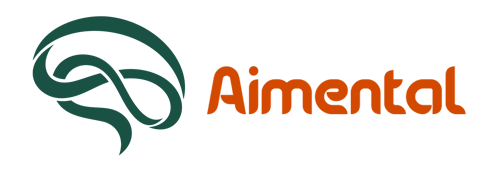-
Depression
depression is a classified as a mood disorder.it may be described as feeling of sadness, loss, or anger that interfere with a person’s everyday activities.
In depression there is a feeling called it Anhedonia.it means feel nothing. People who feel anhedonia don’t enjoy anything in their live. Depression causes feelings of sadness and/or a loss of interest in activities you once enjoyed. It can lead to a variety of emotional and physical problems and can decrease your ability to function at work and at home.
Depression is the emotional expression of a state of ego (consciousness) ego-helplessness and ego-powerlessness to live up to certain strongly maintained narcissistic aspirations. Fortunately, it is also treatable.
Causes
Sometimes there’s a trigger for depression.
For example:
- Family history
- Life changing events such as, bereavement
- Genetic
- Biochemistry in brain
- Personality People with low self-esteem and who are easily overwhelmed by stress
- Environmental factors like violence, neglect, abuse
Now we want to know more about depression and symptoms. Depression symptoms can vary from mild to severe and can include:
- Feeling sad or having a depressed mood
- Loss of interest or pleasure in activities once enjoyed
- Changes in appetite — weight loss or gain unrelated to dieting
- Trouble sleeping or sleeping too much
- Loss of energy or increased fatigue
- Increase in purposeless physical activity (e.g., inability to sit still, pacing, handwringing) or slowed movements or speech (these actions must be severe enough to be observable by others)
- Feeling worthless or guilty
- Difficulty thinking, concentrating or making decisions
- Thoughts of death or suicide
The physical symptoms of depression include:
- moving or speaking more slowly than usual
- changes in appetite or weight (usually decreased, but sometimes increased)
- constipation
- unexplained aches and pains
- lack of energy
- low sex drive (loss of libido)
- changes to your menstrual cycle
- disturbed sleep – for example, finding it difficult to fall asleep at night or waking up very early in the morning
Social symptoms include, avoiding contact with friends and taking part in fewer social activities.
Many people try to cope with their symptoms without realizing they’re unwell. It can sometimes take a friend or family member to suggest something is wrong.
Types of depression:
- mild depression
has some impact on your daily life
- moderate depression
has a significant impact on your daily life
- severe depression
makes it almost impossible to get through daily life; a few people with severe depression may have psychotic symptoms
- postnatal depression
sometimes new mothers, fathers or partners develop depression after they have a baby; this is known as postnatal depression
- bipolar disorder
also known as “manic depression”, in bipolar disorder there are spells of both depression and excessively high mood (mania)
- seasonal affective disorder (SAD)
also known as “winter depression”, SAD is a type of depression with a seasonal pattern usually related to winter
Depression treatment
Talking treatments:
- cognitive behavioral therapy (CBT) aims to help you understand your thoughts and behavior, and how they affect you.
- Interpersonal therapy (IPT) Interpersonal therapy (IPT) focuses on your relationships with others and problems you may be having in your relationships.
- Psychodynamic psychotherapy a psychoanalytic therapist will encourage you to say whatever is going through your mind.
- Counselling is a form of therapy that helps you think about the problems you’re experiencing in your life so you can find new ways of dealing with them.
Medications:
Antidepressants are medicines that treat the symptoms of depression. There are many different types of antidepressants.
Self-help:
- Mindfulness
Mindfulness involves paying closer attention to the present moment, and focusing on your thoughts, feelings, bodily sensations and the world around you to improve your mental wellbeing.
- Support groups
Sitting and talking isn’t the only thing that happens at meetings. Lots of groups organize social events and arrange special activities to help boost your mood and improve your wellbeing.
Brain stimulation:
Brain stimulation is sometimes used to treat severe depression that has not responded to other treatments. These include:
- transcranial direct current stimulation (tDCS)
- repetitive transcranial magnetic stimulation (rTMS)(Kessler 2012)
- electroconvulsive therapy (ECT)
- vague nerve stimulation
Resources:
(Brown and Harris 1989, Beck and Alford 2009)
(Klerman and Weissman 1989)
Beck, A. T. and B. A. Alford (2009). Depression: Causes and treatment, University of Pennsylvania Press.
Brown, G. W. and T. O. Harris (1989). “Depression.” New York: Guilford.
Kessler, R. C. (2012). “The costs of depression.” Psychiatric Clinics 35(1): 1-14.
Klerman, G. L. and M. M. Weissman (1989). “Increasing rates of depression.” Jama 261(15): 2229-2235.

